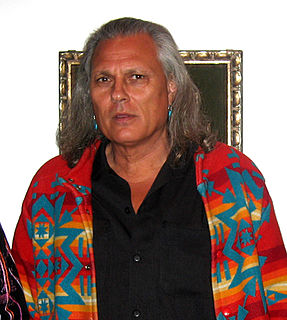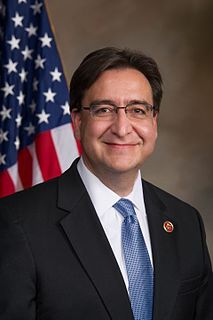A Quote by Malcolm Gladwell
If you think advantage lies in resources, then you think the best educational system is the one that spends the most money.
Quote Topics
Related Quotes
I think the post-Rick-Perry Texas is a Texas that is more competitive between the Democrats and Republicans. I think the Republicans still have a huge advantage, but I think if we're arguing that competition is good for the system, then I think a stronger two-party system in Texas is inevitable, and I think that it will happen.
Our present educational systems are all paramilitary. Their aim is to produce servants or soldiers who obey without question and who accepts their training as the best possible training. Those who are most successful in the state are those who have the most interest in prolonging the state as it is; they are also those who have the most say in the educational system, and in particular by ensuring that the educational product they want is the most highly rewarded.
A new educational system in which all children born shall have the same advantage of physical, industrial, mental and moral culture, and thus be equally prepared at maturity to enter upon active, responsible and useful lives. . . . In so doing, it strikes a fatal blow at . . . the most demoralizing of all monopolies. . . educational superiority.
The problem of giving health care to everybody cannot be solved so long as we're spending huge sums of money for war. Already we have a very wasteful healthcare system, the most wasteful healthcare system in the world. I mean, we spend the most money and still have 40 million people without insurance. Compare us to Cuba. Cuba is our enemy, run by a dictator, Fidel Castro. But people in Cuba get health care at least equal to that of the United States - with very scarce resources. So I think this issue is the most important domestic issue.
As with military campaigns, cultural warfare is always decided over the pragmatic problems of strategy, organization and resources. . . . The factions with the best strategies, most efficient organization, and access to resources will plainly have the advantage and very possibly, the ultimate victory.
The legal system doesn't work. Or more accurately, it doesn't work for anyone except those with the most resources. Not because the system is corrupt. I don't think our legal system (at the federal level, at least) is at all corrupt. I mean simply because the costs of our legal system are so astonishingly high that justice can practically never be done.
When a man spends his own money to buy something for himself, he is very careful about how much he spends and how he spends it. When a man spends his own money to buy something for someone else, he is still very careful about how much he spends, but somewhat less what he spends it on. When a man spends someone else's money to buy something for himself, he is very careful about what he buys, but doesn't care at all how much he spends. And when a man spends someone else's money on someone else, he does't care how much he spends or what he spends it on. And that's government for you.
The most encouraging sign is that 71 percent of the public believe the system is profoundly corrupted by the power of money. Ninety-six percent of the people believe it's "important" that we reduce the influence of money. Yet 91 percent think it's "not likely" that its influence will be lessened. Think about that: People know what's right to do yet don't think it can or will be done.
Most people in the country would think the diamond jubilee is a wonderful occasion for us to celebrate together as a community and as a nation. But I suspect that most people in the country would think, given that there is very little money around, that this probably would not be the top of their list of priorities for the use of scarce public resources.
If you have the abilities to earn a lot of money and if you have the character to persist in giving that to the most effective charities you can find, then that may be the best thing that you can do. And - also, if you do become a Wall Street banker, I think you need to be aware of what you're doing in terms of your daily work, not just earning money to give a lot away. But you need to think about - am I harming people through the work that I'm doing?
I think with the advent of Reagan, and subsequently, both parties, there's been a strong move towards the advantage given to the richer people, in taxation and grants and supplements and things of that kind. Primarily exacerbated more recently by the Supreme Court's stupid ruling on Citizens United, and now there's a massive flood of money into the political system that I think has subverted the essence of a moral and ethical standard that used to permeate American democracy. Now it's not an admirable process. I think we've gone backwards.



































